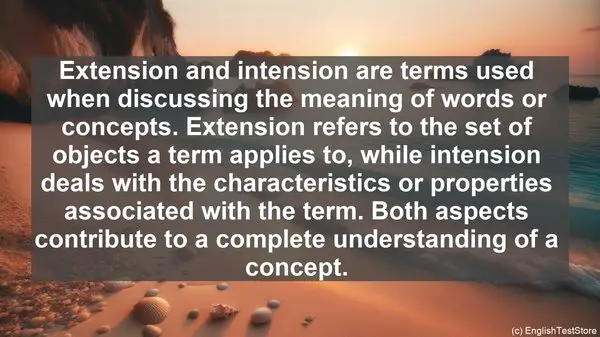Introduction: The Importance of Precision in Analytical Philosophy
Welcome to today’s lesson. In the realm of analytical philosophy, precision is paramount. A slight misinterpretation of a word can lead to a completely different understanding of a concept. Today, we’ll explore the top 10 words that often cause confusion and discuss their nuanced meanings.
1. Intentionality vs. Intensionality
Intentionality and intensionality may sound similar, but they refer to distinct concepts. Intentionality deals with the aboutness of mental states, while intensionality focuses on the internal structure of propositions. So, while both words involve ‘intents,’ they operate in different domains.
2. Epistemic vs. Ontic
Epistemic and ontic are frequently used in discussions about existence and knowledge. Epistemic pertains to knowledge or belief, while ontic refers to the actual existence or being of something. So, when analyzing a philosophical argument, it’s crucial to differentiate between the two.
3. A Priori vs. A Posteriori
A priori and a posteriori are terms often encountered in discussions about knowledge and justification. A priori knowledge is independent of experience, derived through reason alone. On the other hand, a posteriori knowledge is based on empirical evidence. Understanding this distinction is key to evaluating philosophical claims.

4. Analytic vs. Synthetic
Analytic and synthetic propositions are central to logical and linguistic analysis. Analytic statements are true by definition, while synthetic statements require empirical verification. Distinguishing between the two is crucial for understanding logical arguments and the nature of truth.
5. Extension vs. Intension
Extension and intension are terms used when discussing the meaning of words or concepts. Extension refers to the set of objects a term applies to, while intension deals with the characteristics or properties associated with the term. Both aspects contribute to a complete understanding of a concept.
6. Necessary vs. Contingent
Necessary and contingent are terms used in modal logic. Necessary propositions are true in all possible worlds, while contingent propositions are true in some but not all possible worlds. Grasping this distinction is crucial for analyzing modal arguments and possibilities.
7. Phenomenon vs. Noumenon
Phenomenon and noumenon are often discussed in the realm of metaphysics. A phenomenon is the appearance or manifestation of something, while a noumenon is the thing-in-itself, beyond our perceptual experience. Understanding this duality is essential when delving into the nature of reality.

8. Token vs. Type
Token and type are terms used in philosophy of language. A token is an individual instance of something, while a type represents the general category or concept. Distinguishing between the two is crucial for analyzing language and communication.
9. Validity vs. Soundness
Validity and soundness are terms used in evaluating arguments. Validity refers to the logical structure, ensuring that if the premises are true, the conclusion must be true. Soundness, on the other hand, requires both validity and true premises. Recognizing this distinction is vital for assessing the strength of an argument.
10. Inductive vs. Deductive
Inductive and deductive reasoning are two fundamental approaches in philosophy. Inductive reasoning involves moving from specific observations to general conclusions, while deductive reasoning starts with general principles and moves to specific conclusions. Both have their uses and limitations, and understanding when to employ each is crucial.
